Sir David Dalrymple, 1st Baronet, of Hailes was a Scottish advocate and politician who sat in the Parliament of Scotland from 1698 to 1707 and in the British House of Commons from 1707 to 1721. He served as Lord Advocate, and eventually Auditor of the Exchequer in Scotland in 1720.
William Annesley, 1st Viscount Glerawly was an Irish politician and noble.
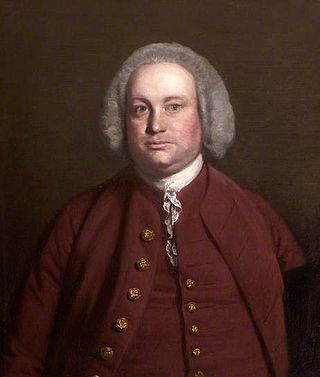
James Buller of Morval in Cornwall and of Downes and King's Nympton in Devon, was a Member of Parliament for East Looe in Cornwall (1741-47) and for the County of Cornwall (1748-1765). He was ancestor of the Viscounts Dilhorne and the Barons Churston and built the Palladian mansion Kings Nympton Park in Devon.
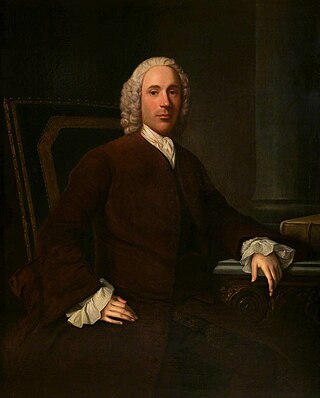
Hon. William Finch of Charlewood, Hertfordshire, was a British diplomat and Whig politician who sat in the House of Commons from 1727 to 1761. He was considered an indolent diplomat and became an opponent of Walpole, but maintained his post in the Royal Household for over 20 years until he began to lose his senses.
Joseph Gulston may refer to:

Joseph Gulston (1745–1786), was an English collector and connoisseur, and a Member of Parliament.
George Heathcote was an English merchant and philanthropist and Tory politician who sat in the House of Commons from 1727 to 1747. He was Lord Mayor of London in 1742.

Henry Furnese, of Gunnersbury House, Middlesex, was a British merchant and politician who sat in the House of Commons between 1720 and 1756.

John Pitt (c.1706–1787) of Encombe House, Dorset was a British MP for 35 years. He is recorded as having given one speech to Parliament. He is noted for being the first to be appointed to office of the Steward of the Chiltern Hundreds for the purpose of resigning from parliament.
Benjamin Bathurst FRS of Lydney, Gloucestershire, was an English politician who sat in the House of Commons for 54 years from 1713 to 1767.
Sir Thomas Hallifax, of Gordon House, Enfield, Middlesex, was an English banker, Lord Mayor of London and Member of Parliament.
Joseph Banks, of Revesby Abbey, Lincolnshire was a British landowner and politician who sat in the House of Commons from 1728 to 1734.

James Baillie was a Scottish merchant, planter and politician who served as a member of Parliament for Horsham from 1792 to 1793.
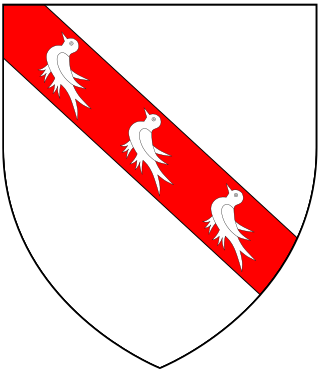
Sir Joseph Danvers, 1st Baronet, of Swithland, Leicestershire, was an English politician who sat in the House of Commons from 1722 to 1747.

Ealing Grove was a mansion and estate in Ealing, Middlesex, west London, England. It was adjacent to the Ealing House estate, but distinct from it, and stood amongst trees.
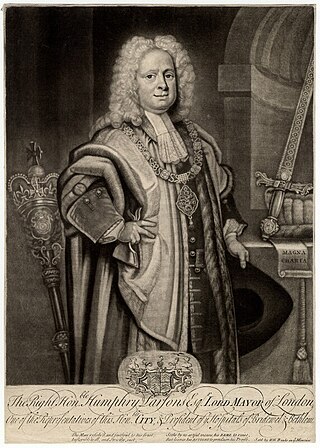
Humphrey Parsons was an English merchant and Tory politician who twice served as Lord Mayor of London in 1730 and 1740. He also sat in the British House of Commons from 1722 to 1741.

Richard Lyster of Rowton Castle, Shropshire, was a British landowner and Tory politician who sat in the House of Commons for 34 years between 1722 and 1766
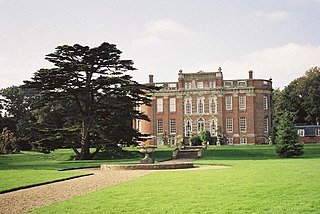
George Chafin or Chaffin, of Chettle House, Dorset, England, was a British landowner and Tory politician who sat in the House of Commons from 1713 to 1754.
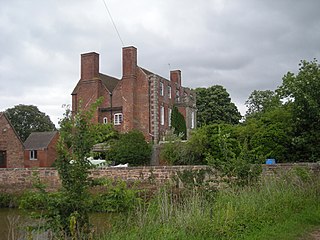
Grey James Grove of Pool Hall, Alveley, Shropshire, was a British Whig politician who sat in the House of Commons in two parliaments between 1715 and 1741.
Jacob Houblon, of Hallingbury, Essex, was a British landowner and Tory politician who sat in the House of Commons between 1735 and 1768.












